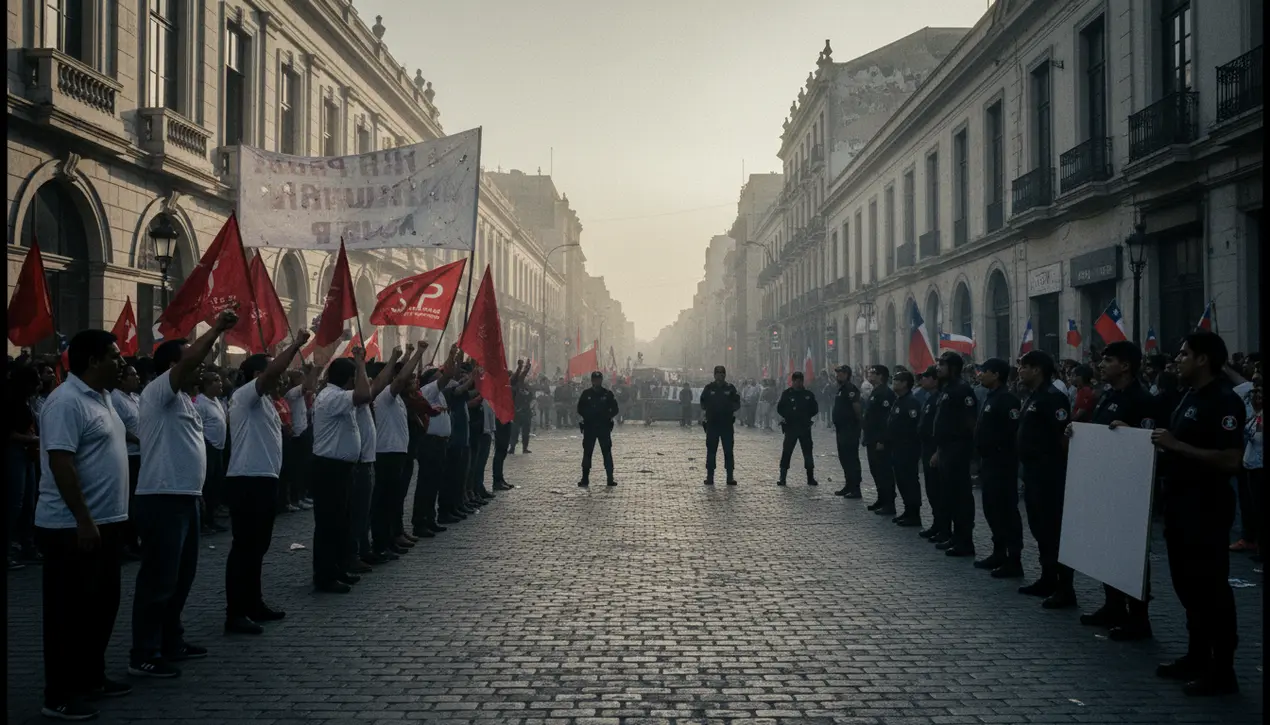
PoliticselectionsPresidential Elections
Chile's Presidential Run-off Pits Communist Against Far-right Candidate.
RO
Robert Hayes
3 hours ago7 min read
The political landscape of Chile has fractured into a stark ideological contest, setting the stage for a December run-off that echoes the profound cleavages of a nation still grappling with the long shadow of its past. The advancement of the Communist Party's Jeanette Jara and the far-right's José Antonio Kast to the second round is not merely an electoral outcome; it is a historical pivot point, a dramatic re-enactment of the Cold War-era binaries many believed had been consigned to history.This runoff represents the collapse of the center, a phenomenon witnessed in other Western democracies but now striking at the heart of South American stability. The first-round results, which saw Kast secure a narrow plurality, sent immediate shockwaves through financial markets and diplomatic circles, a testament to the high stakes involved.Kast’s platform, drawing parallels to the nationalist conservatism of figures like Spain's Vox, promises a hardline approach to law and order, immigration, and economic liberalization, invoking a nostalgic vision of traditional values that resonates with voters weary of crime and social unrest. His rhetoric, often compared to that of Brazil’s Jair Bolsonaro, frames the election as a final bulwark against Marxist influence.Conversely, Jeanette Jara, representing the leftist Broad Front coalition, embodies a resurgent progressive movement focused squarely on dismantling the neoliberal economic model entrenched since the Pinochet dictatorship. Her campaign champions a vast expansion of social rights, deeper state involvement in the lucrative copper industry, and the drafting of a new, more progressive constitution to replace the one currently under debate—a process itself born from massive social protests in 2019.The historical parallel is inescapable: Chile, a country that suffered a brutal 1973 coup that ousted socialist President Salvador Allende and installed General Augusto Pinochet, now finds its electorate polarized between two heirs to that foundational conflict. Analysts note that the decisive factor will be the nearly 55% of voters who supported more moderate candidates in the first round.Their allegiance is now the prize in a high-stakes battle for Chile’s soul. Will they break for Kast, viewing him as the lesser risk to economic stability, or will they gravitate toward Jara’s promise of transformative social justice, despite fears spooked by her communist affiliation? The international community watches with bated breath; a Kast presidency would realign Chile with right-leaning governments in the region and potentially cool relations with China, while a Jara victory would signal a powerful consolidation of the Latin American left, following in the footsteps of Peru and Bolivia. The campaign over the coming weeks will be less about policy minutiae and more about which candidate can most effectively frame the election as a defensive struggle for the nation's future, a battle where, much like in Churchill’s time, the choices are presented not as mere political preferences, but as existential imperatives.
#Chile
#presidential election
#run-off
#José Antonio Kast
#Jeanette Jara
#Communist Party
#far-right
#featured
Stay Informed. Act Smarter.
Get weekly highlights, major headlines, and expert insights — then put your knowledge to work in our live prediction markets.
Related News
Comments
Loading comments...
© 2025 Outpoll Service LTD. All rights reserved.